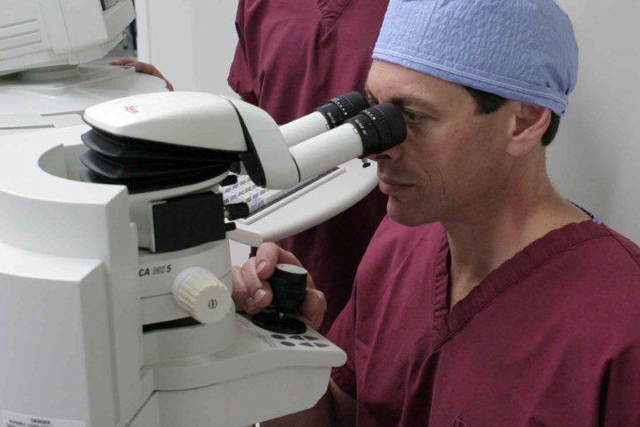Posted by: Eye Specialists of Mid Florida in Blog

Refractive surgery is surgery designed to replace glasses or contact lenses. The most popular procedure is LASIK, which stands for laser assisted in situ keratomileusis. This means shaping the cornea in place using a laser. There are other refractive surgeries also. Another common one is photorefractive keratectomy or PRK. This means removing corneal tissue using laser to change the focusing of the eye. Other procedures involve replacing the natural lens of the eye with an artificial more correctly powered lens or adding an artificial implantable lens to enhance the eye’s focus.
Refractive error is the general term used to describe conditions where the eye does not focus properly and using glasses to focus corrects the problem. Other choices to correct refractive errors are contact lenses or surgery. Any of these three options simply focus incoming light properly so the eye can see. As such none of them, including refractive surgery can make an eye see better than its underlying potential. They all work equally well. An eye that cannot see 20/20 with glasses or contacts will not in most cases see 20/20 with refractive surgery.
Refractive surgery is a good option for people who do not like wearing glasses or contacts or have developed medical conditions such as dry eyes or allergies that will not allow them to wear contacts. There are some conditions that cause some patients to not be good candidates for refractive surgery. Thin or flat corneas, high degrees of refractive error, irregularly shaped corneas and some hereditary corneal disease are some conditions that could be problematic. We do extensive screening tests to detect these conditions during the pre-operative evaluation.
Refractive surgery is not covered by insurance. Medical insurance does not cover it because it is equivalent to using optical devices, glasses or contacts. Vision insurance doesn’t cover it because it is surgery. It is possible in most cases to arrange financing through Care Credit a company that finances medical services not covered by insurance. If you are interested in finding out more details about refractive surgery contact us, we have a dedicated refractive surgery counselor that can help you with any questions you might have.
